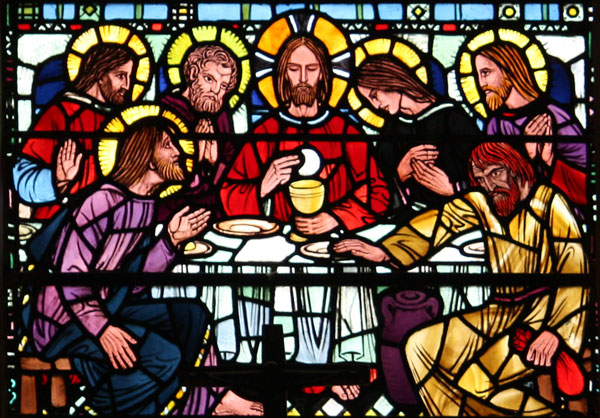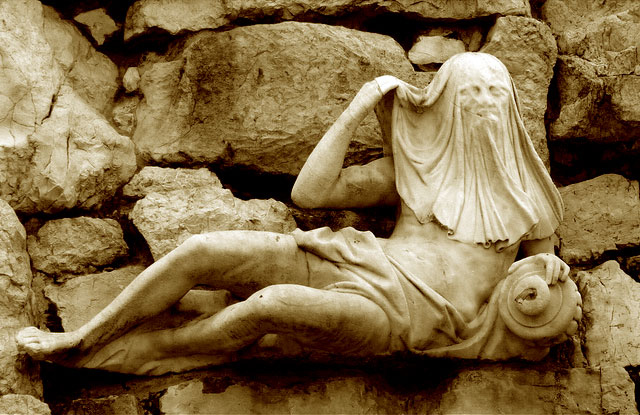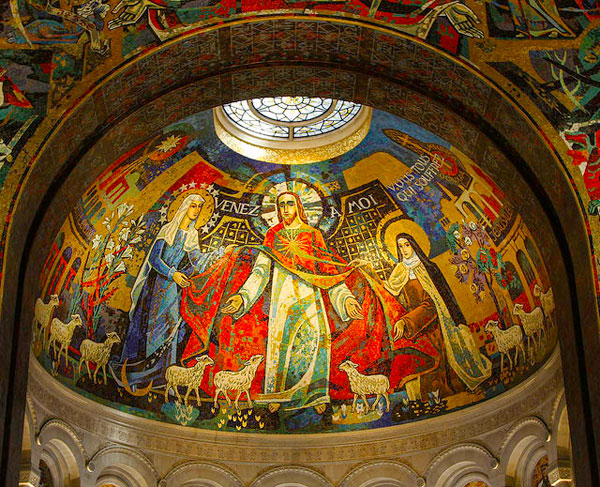Since we have now been justified by his blood, how much more shall we be saved from God’s wrath through him! (Romans 5:9)
In my
previous post, I wrote that we are saved
by God, not
from God. This contradicts a certain way many Christians have come to think, a view often known as
penal substitutionary atonement. It teaches that God was offended by us because of our sin and that only the penalty of death could assuage his fierce and holy anger. So God became a man, Jesus Christ, in order to die that death and pay that penalty on our behalf. According to this theology, we are saved
by God but also
from God.
Such was the view I held for several years myself, but I have since come to see differently: Christ did not come to save us from God but to deliver us from the bondage of sin and death and so turn us back to God. Understandably, this has received some pushback from those who hold my former view.
One line of criticism has to do with the wrath of God, and Romans 5:9 is the prime go-to. The
NIV and several other translations have it that we are, “saved from
God’s wrath.” The Greek text, however, simply says σωθησομεθα δι αυτου απο της οργης — “saved through him [Christ] from the wrath.” Note that the text itself does not identify the wrath as belonging to God, but the translators have assumed it to be so.
Is it
God’s wrath that Paul has in mind? Possibly, and I’ll address that in a moment. But first, let me suggest a different possibility. In the context of Romans 5, I think Paul could be referring to the persecutions suffered for the sake of the gospel. He speaks of such persecutions just a few verses earlier: “Not only so, but we also glory in our sufferings, because we know that suffering produces perseverance; perseverance, character; and character, hope. And hope does not put us to shame, because God’s love has been poured out into our hearts through the Holy Spirit, who has been given to us” (Romans 5:4-5).
Paul “gloried” in those sufferings, not because of what they were in themselves but because of what they resulted in, namely, a hope that “does not put us to shame.” He goes on to explain that hope in the verses that follow. When he speaks of being “saved” from the “wrath” in verse 9, then, he could be referring to the wrath of persecution and the hope which saves us from being shamed by it.
But let’s also consider verse 10, where Paul asks, “For if, while we were God’s enemies, we were reconciled to him through the death of his Son, how much more, having been reconciled, shall we be saved through his life!” Like verse 9, it is a “how much more” comparison, and along the same lines. Notice what it is that saves us in this instance. Yes, in verse 10, we are reconciled to God through the
death of Christ, just as we are justified by the blood, or death, of Christ in verse 9. But in verse 10, notice that Paul says it is the
life of Christ that saves us; this matches “saved from wrath” in verse 9. In other words, the parallelism of these two verses would seem to indicate that what saves us from wrath (v. 9) is the
life of Christ (v. 10).
What is the wrath that the life of Christ saves us from in this context? The wrath of God? That hardly seems likely, especially considering that those who believe Christ saves us from the wrath of God usually believe he does so by his death on the cross. But the salvation Paul refers to in this passage is achieved by the life of Christ. Again, I suggest that the hope we have in the gospel — the expectation we have in Christ, and of his life in us — saves us from being ashamed of the gospel because of persecution.
But what if we assume, as many do, that it is God’s wrath that Paul has in mind — then what is that wrath and how does it work? Paul has already discussed the wrath of God at the top of this letter, in Romans 1 (I have blogged about that in
How the Wrath of God is Revealed). In short, it is not about God inflicting something on the wicked in retaliation for their wickedness. It is God giving them over to the depravity of their ways, and to the consequences that naturally arise from them.
If the wrath Paul speaks about in Romans 5 is the wrath of God, then, contextually, we should understand it in terms of Paul’s discussion of that wrath in Romans 1. So if we are saved from the wrath of God, and the wrath is that he gives us over to our own sinful desires and self-degradations, then what we are really saved from is our own selves, the bondage of our depraved and sinful desires.
What saves us, then, is that we are
reconciled to God, which is to say, turned back to him. For in our depravity, we turned away from God. But God did not leave us in that condition. Instead, through Christ and by the work of the cross, he delivered us from the sinful desires, shameful lusts and depraved thinking that held us captive.
The reconciliation we have in Christ, in Romans 5:10, is not about mollifying God, appeasing his anger or preventing him from retaliating against us. For it is not God who has been reconciled to us. Rather, it is we who have been reconciled to God. Just as it was not God who turned away from us; it was we who turned away from God.
The death of Christ on the cross does not change God’s attitude toward us. It changes our attitude toward God, by freeing us from death and darkness and depravity of mind so that we can return to God. By turning us back to God through Christ, God delivers us from shame by the life of Christ now at work in us.
Through the death and life of Christ, then, we are saved from death, from sin, from darkness, from depravity of mind — in a word, from ourselves. We are not saved
from God but
by God. For God was already kindly disposed toward us to deliver us from all those things. Paul tells us in Romans 5:8 that God demonstrated his love for us in that
even while we were still sinners, Christ died for us. This was not the emotionally disordered action of a confused deity who, on the one hand, desired to save us but, on the other hand, what he must save us from is his own angry, retaliatory self. That would be simply incoherent. Rather, it was the gracious response of God who is love and who therefore looks on us always and only with love.

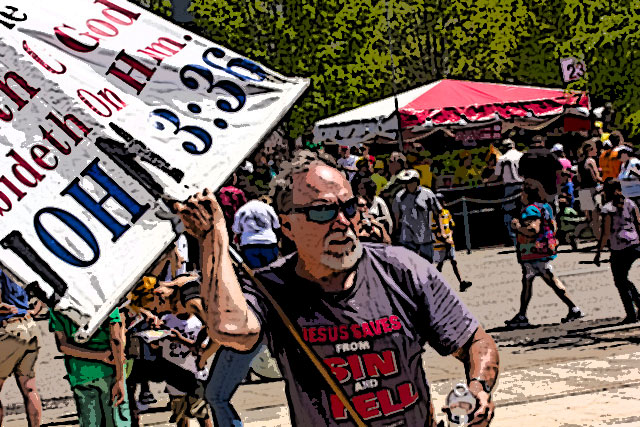






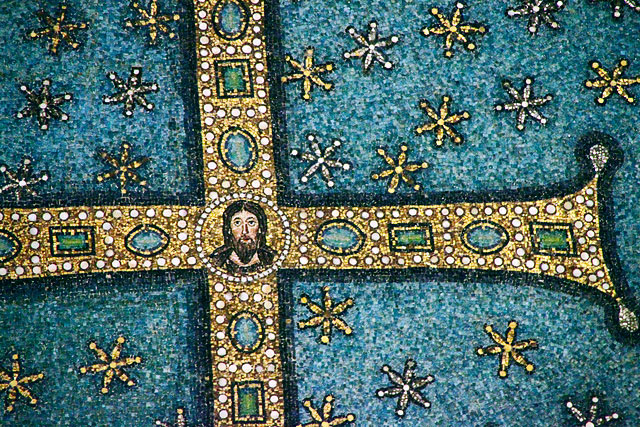

![Sinaia Monastery, Romania interior of the Old Church [finished in 1695]. Photo by fusion-of-horizons. Remix by Jeff Doles. https://www.flickr.com/photos/fusion_of_horizons/6155185976/](https://3.bp.blogspot.com/-xUmC57dGxJ4/VvVAFVTDmcI/AAAAAAAAEMU/pR9XpToWc5EZW-6zDeDhv50aYw51pTlMA/s1600/6155185976_4dec05013f_b.jpg)
